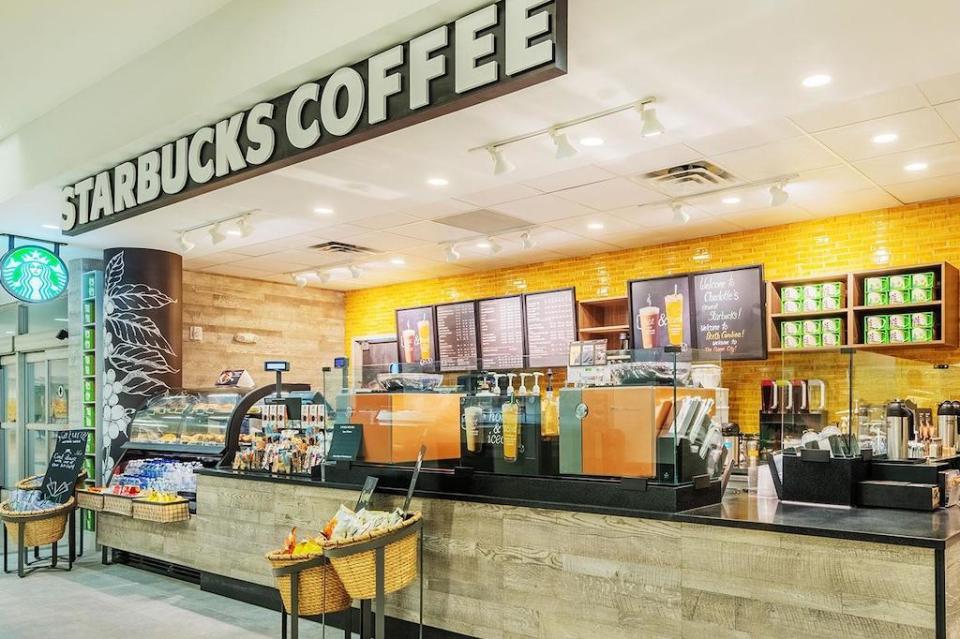You May See Fewer Starbucks Coffee Shops at U.S. Airports: Here’s Why

You soon may see fewer Starbucks stores at U.S. airports, after HMSHost, which operates all of the roughly 400 terminal locations nationwide, severed its nearly 30-year-old exclusivity agreement with the famous coffee chain.
Since 1991, HMSHost has been the only concession company that could partner with Starbucks at U.S. airports. Starbucks has been a boon for business, with some airports choosing HMSHost to operate many of their food and beverage outlets because they wanted the iconic coffee company. But interests change, and in recent years, Starbucks hasn’t been the draw for airports it once was.
Still, this doesn’t mean Starbucks will disappear from airports. A lot of HMSHost locations have 10-year agreements with airports, so many will remain for many years. Also, other concession companies will now be free to bid for Starbucks airport locations.
Blame the Local Craze
For HMSHost, sales are not necessarily the problem. Starbucks outlets still perform well at airports, because customers know and trust the brand and may prefer it over unfamiliar options. And coffee overall is good business, as airport customers buy it at all times of the day, not just breakfast.
The majority of U.S airports, however, are run by cities, counties, or state governments. Most have gone on a local brands kick, forcing concessionaires to strike deals with smaller companies with roots nearby.
Nearly all U.S. airports use giant concessionaires like HMSHost, OTG, or SSP America to bid on and operate a wide swath of food and beverage outlets. Each company makes agreements with local or national brands and then bids to operate their stores on their behalf. Airports usually award bids in groups, so HMSHost might be responsible for operating all concessions in a concourse or terminal.
Sometimes, Starbucks holds the company back. An airport might seek bids for a concessionaire to run six businesses at once, but if a local authority did not want a Starbucks, HMSHost could lose the bid for all six concepts, even if the airport liked the other five.
Airports still will choose national brands, but many specifically solicit for local businesses. In a 2017 request for proposals for a coffee kiosk, San Francisco International Airport said it is “committed to the participation of local owners featuring local concepts in its concession opportunities. SFO’s food and beverage program is largely local, featuring fresh ingredients and enticing restaurateurs.”
New Concepts
In a release, HMSHost said it plans to work with “emerging coffee brands” to rethink the airport coffee experience. Its release teased “innovative mobile carts that move from gate to gate” and “coffee shops built for speed” that “use the latest technologies to facilitate fast ordering and production.”
A representative for Starbucks did not reply to a request for comment.
The news was first reported by The Moodie Davitt Report.
Subscribe to Skift newsletters covering the business of travel, restaurants, and wellness.

 Yahoo Finance
Yahoo Finance 